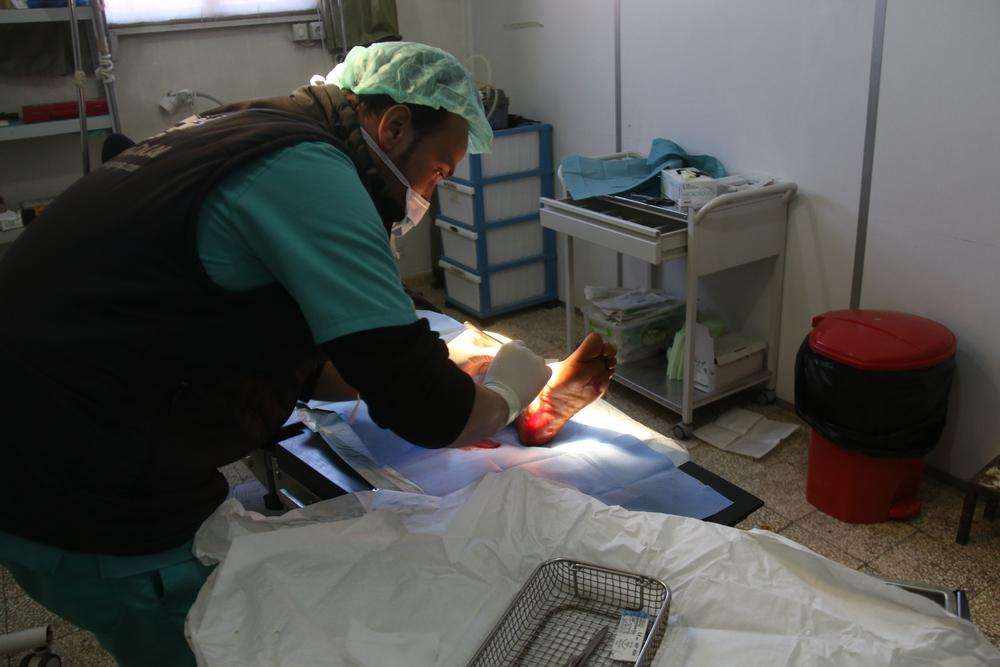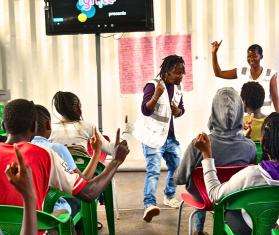Gaziantep, Turkey—More than 100,000 people are trapped at the Turkish border in the Azaz District of Aleppo Governorate in northern Syria, as the front line in fighting between an active Islamic State group and Kurdish forces gets closer, said the international medical humanitarian organization Doctors Without Borders/Médecins Sans Frontières (MSF) today.
The Turkish border has been closed for the last year to all but the most seriously ill Syrians and some humanitarian staff with special permits. In the past week, more than 35,000 people have fled displacement camps taken over by the Islamic State, or that are now too close to the front lines. There are now more than 100,000 people gathered at border areas with Turkey, with active fighting just seven kilometers away.
"Yet again we see tens of thousands of people forced to flee but with almost nowhere safe to go—trapped in this bloody, brutal conflict," said Muskilda Zancada, MSF head of mission in Syria. "Our medical teams are working under unimaginably difficult conditions and given the severity of the crisis we have decided to focus on emergency lifesaving interventions. In the last week we have seen nearly 700 patients in the emergency room, including 24 war-wounded."
More: New Offensives Bring More Suffering, Displacement to Aleppo Governorate
Several medical facilities have also been forced to shut down as fighting draws close and medical staff flee. MSF’s 52-bed hospital in northern Azaz district is still running—and is prioritizing emergency care.
The hospital has also assisted with eight deliveries since April 10, and MSF teams have so far distributed emergency relief items such as blankets and tarpaulins to more than 3,400 newly displaced people.
"MSF once again asks warring parties to respect civilians and health structures, but given how this war has been conducted from the very beginning, including deliberate targeting of civilians, we are extremely worried about the protection of the population if the front lines keep approaching," said Zancada.
MSF believes there is a cruel contradiction between the situation in northern Syria and the current priorities of the European Union with regard to Syrian refugees.
"It is unacceptable that the current efforts of the EU are focused on how to return Syrian refugees to Turkey, instead of on how to assure safety and protection for those amassing at the Syrian-Turkish border," said Pablo Marco, operations manager for MSF in the Middle East.
MSF calls on the European Union and Turkey to work together to find a humane solution to this emergency, one that ensures the protection of people fleeing for their lives.
"The EU and Turkey have a long history as providers of safe havens," said Marco. "Today more than ever we need to see that commitment to upholding people’s right to flee from this brutal war."
MSF runs six medical facilities across northern Syria and supports more than 150 health centers and hospitals across the country, many of them in besieged areas. MSF’s hospital in Azaz District has doubled its capacity since February, when fighting brought thousands of internally displaced people into the area.





